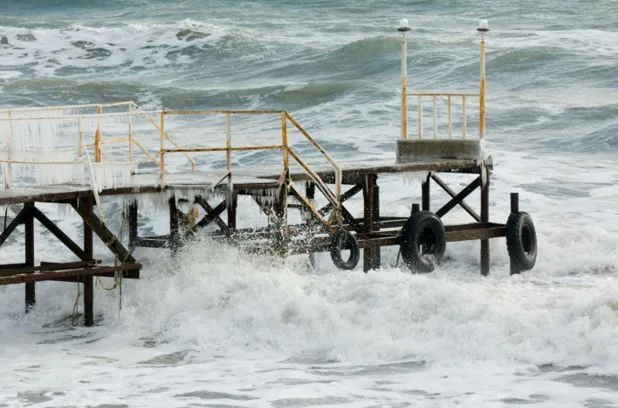Why Does New Jersey Flood So Much? (And What You Can Do About It)
If you live in New Jersey, you’ve probably seen how just a few hours of heavy rain can turn streets into rivers, basements into ponds, and daily life into chaos. From flash floods to rising tides, water is becoming a growing and more frequent threat across the Garden State.
But why exactly is New Jersey experiencing so much flooding these days? And more importantly—what can you do to protect your home, your family, and your property?
Here’s a breakdown of the factors driving the increase in floods, and how professional water damage cleanup can help you recover faster when the water rises.
The Top Reasons New Jersey Floods So Frequently
1. Climate Change Is Supercharging Storms
One of the biggest contributors to New Jersey’s frequent flooding is climate change. Warmer air holds more moisture, which means heavier downpours. According to a 2025 climate impact study, rainfall in the Northeast has increased by more than 70% in recent decades during the heaviest storms.
This leads to:
- Overwhelmed storm drains
- Flash flooding in urban and suburban neighborhoods
- “Once-in-a-century” events happening every few years
2. Sea-Level Rise and Coastal Erosion
With over 130 miles of shoreline, New Jersey is especially vulnerable to rising seas. Coastal areas like Atlantic City and Hoboken are experiencing tidal flooding even on sunny days, known as “nuisance flooding.”
Rising sea levels also:
- Push saltwater into freshwater systems
- Worsen storm surges during hurricanes and nor’easters
- Increase the footprint of flood-prone zones year after year
3. Urban Development and Impervious Surfaces
As New Jersey continues to expand housing, highways, and commercial real estate, natural soil and wetlands are being replaced by concrete and asphalt.
This creates:
- Runoff that has nowhere to go
- Backed-up stormwater systems
- Higher risk of basement flooding, even during mild storms
Much of the state’s older infrastructure systems simply wasn’t built to handle today’s level of rainfall.
Who’s Most at Risk?
According to the NJ Department of Environmental Protection, over 250,000 homes in the state are now in areas at risk for flooding. But the truth is: anyone can be affected.
You may be at higher risk of water flooding damage, especially during storms or seasonal weather swings, if your home is located:
- Near a river, creek, or low-lying area
- In an older neighborhood with poor drainage
- On the coast or near tidal marshes
What to Do Before a Flood Hits
Being proactive is the best defense. Here’s how homeowners can reduce the risk:
- Install a sump pump with a battery backup system
- Seal your basement walls and floors with waterproof coatings
- Keep gutters and storm drains clear of leaves and debris
- Elevate HVAC, electrical systems, and water heaters if in a flood-prone area
- Check your homeowner’s insurance policy for flood coverage (standard policies often don’t include it)
It’s also smart to have a local water damage restoration company on call so you can act quickly if flooding strikes.
What to Do If You Experience Flood Damage
When flood water enters your home, time is critical. Mold can begin forming within 24–48 hours, and standing water can compromise structural elements if not removed quickly.
Here’s a step-by-step response plan:
- Ensure safety first — turn off electricity and evacuate if needed.
- Contact your insurance company and file a claim.
- Call a professional emergency water damage cleanup team to assess the damage and begin mitigation immediately.
- Document everything — take photos, keep receipts, and track all communication.
- Let restoration experts handle:
- Water extraction and drying
- Mold prevention and remediation
- Repairing damaged drywall, flooring, or wiring
- Sanitizing and deodorizing your home
Working with licensed professionals ensures that your home is restored properly, and prevents long-term issues like structural decay or toxic mold.
Final Thoughts: Flooding Is Inevitable, But So Is Recovery
New Jersey may flood more often than it used to, but that doesn’t mean you’re powerless. With the right prevention, preparation, and restoration team, you can protect your home, minimize damage, and recover more quickly.
Don’t wait for the next storm to think about flood safety. Know your risk, prepare your home, and keep a water damage cleanup expert you trust on speed dial.
Because when water rises, quick action can save everything that matters most.



